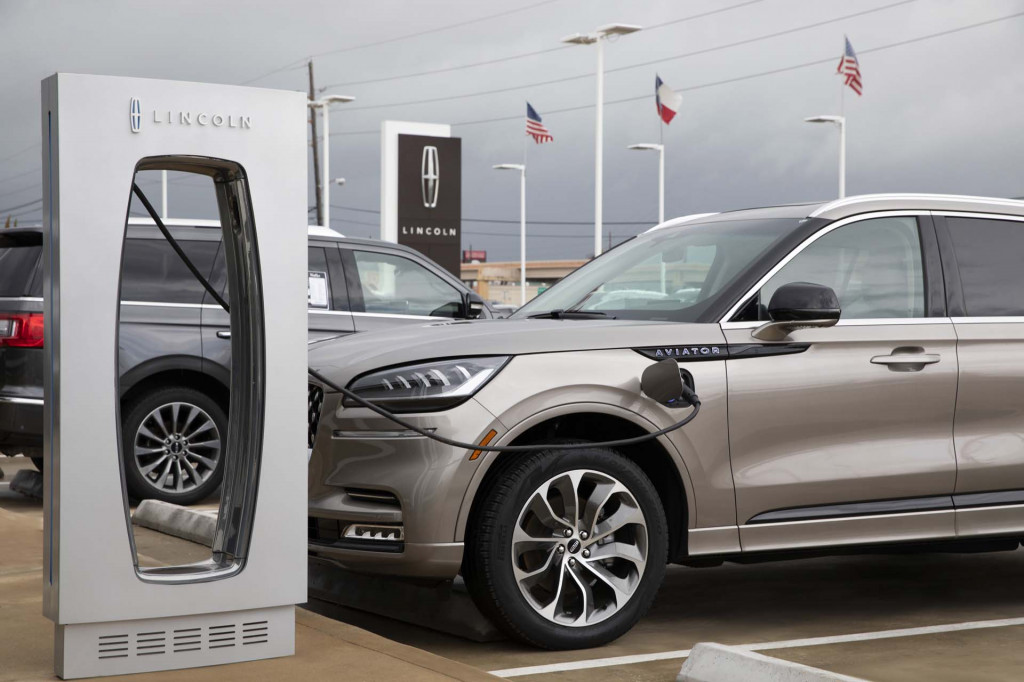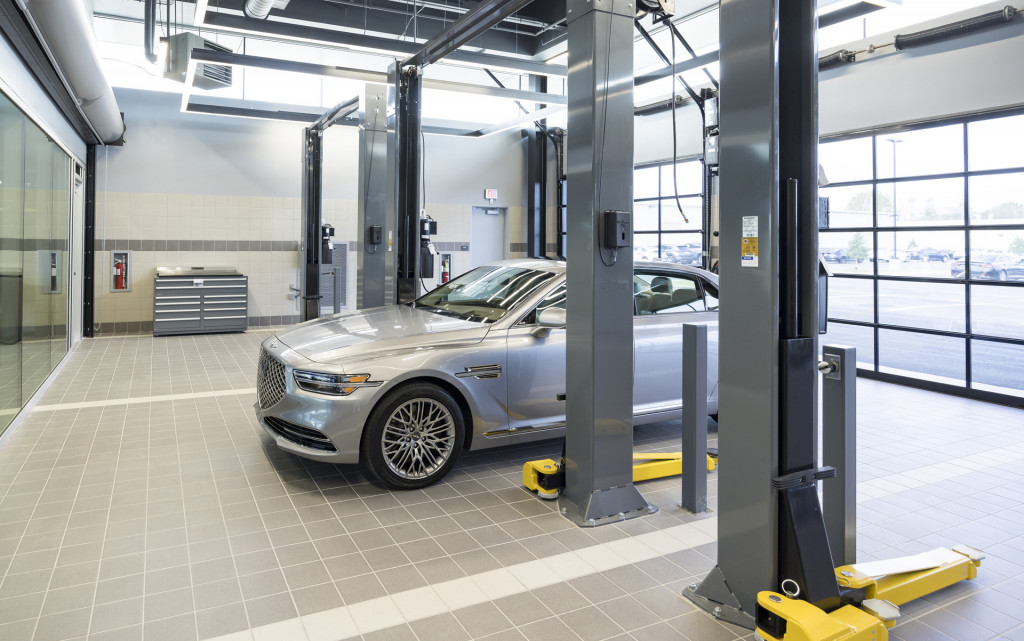Franchise dealerships anticipate spending $5.5 billion on new infrastructure to sell EVs, according to the National Automobile Dealers Association (NADA), a car dealer trade group.
The estimate is “based on available data from a selection of brands,” according to an NADA press release. Some automakers have asked dealerships to invest in chargers and other upgrades to sell EVs, but the NADA didn’t break its overall estimate down by individual brand, or specify a timeline for the spend.
Individual brands are asking dealerships to invest anywhere from $100,000 to $1 million, according to the group, and costs “do not necessarily include the specialized equipment purchases needed to service EVs or the additional costs from local utilities for extending new power lines or adding transformers” to support EV charging.
Dealer franchises have over time become part of the backbone of regional and small-town economies. According to the NADA, there are 16,773 franchise dealerships in the U.S. today, and they create nearly 2.3 million jobs, paying an average of nearly $89,000 annually.

Lincoln boutiques and dealerships
To put the scope of the $5.5 billion estimate quoted by the NADA in perspective, the 2021 federal infrastructure bill commits $7.5 billion toward a nationwide network of 500,000 EV chargers. Such a buildout represents more than triple the number of charging stations in the nation when the bill was passed in November 2021.
Most automakers have laid down charging hardware requirements for dealerships. As EVs have started to arrive with lackluster demand, then become hot items, dealerships have mostly gotten past the debate of upgrades vs. obsolescence.
That’s opened up some divisions between brands—with EVs offered at more Kia dealerships than Hyundai stores, for instance, because Kia got its dealerships ready and imposed charger hardware requirements sooner. NADA has nudged its dealerships to talk about charging—and that’s probably encouraged some of these initiatives directly from dealers as well.

Genesis dealership in Lafayette, Louisiana
In some cases, automakers are taking requirements beyond charging investments. General Motors has looked to its dealerships to deploy destination chargers in communities, while footing some of the bill, but has also asked Buick and Cadillac franchises to commit to EV-only sales in the near future. Those that didn’t get onboard were offered buyouts.
Ford dealerships will no longer be able to mark up EVs or haggle over price starting in early 2024. With the part of the relationship buyers aren’t so sold on left out, Ford is betting that it will result in greater loyalty to dealers.

